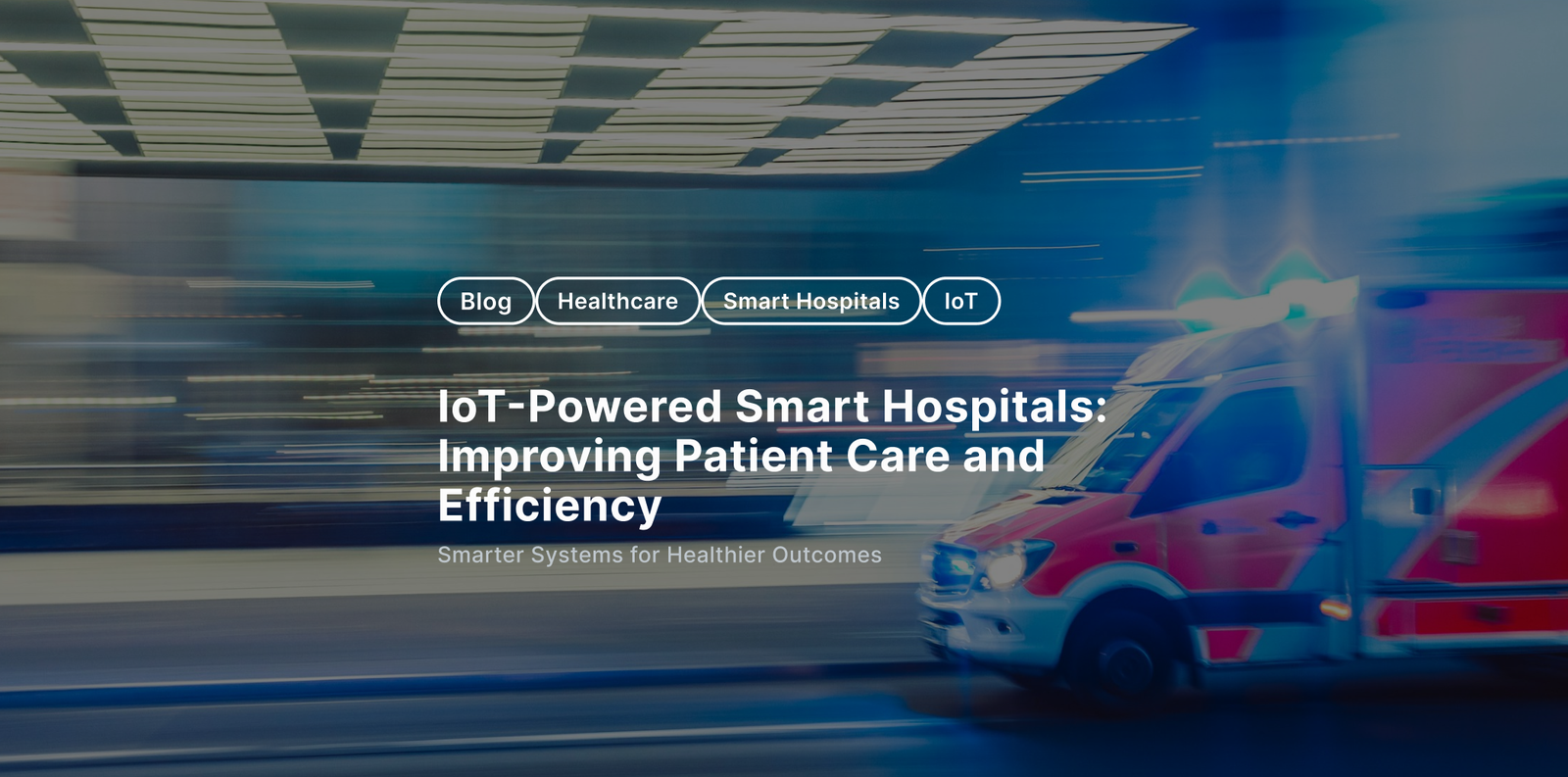✆ + 1-646-235-9076 ⏱ Mon - Fri: 24h/day
IoT-Powered Smart Hospitals: Improving Patient Care and Efficiency


Modern hospitals face growing challenges from overwhelmed medical staff and aging infrastructure to the increasing demand for personalized, efficient care. These issues often lead to delayed diagnoses, resource inefficiencies, and patient dissatisfaction. To solve these systemic problems, healthcare systems must embrace smart technologies like the Internet of Things (IoT).
IoT in healthcare enables real-time data collection, remote monitoring, workflow automation, and better clinical decision-making, laying the foundation for smart hospitals that deliver connected, patient-centered care.
How IoT Improves Patient Care
The integration of IoT in hospitals marks a shift from reactive care to proactive, data-driven healthcare. IoT medical devices such as smart monitors and wearable sensors track vitals continuously, alerting caregivers to changes in real time. This improves diagnostics, accelerates treatment, and enhances patient outcomes.
For clinicians, IoT reduces administrative workloads and improves access to actionable health data, leading to more accurate and timely decisions. For patients, it brings faster diagnoses, personalized care plans, and improved comfort.
Smart Hospital Technologies Shaping the Future
- AI-Powered Diagnostics
IoT devices combined with artificial intelligence (AI) enable early detection of diseases like cardiac arrhythmias, respiratory issues, and neurological disorders. These insights help doctors act before symptoms worsen. - Predictive Maintenance
IoT sensors in hospital equipment like MRI scanners and ventilators detect issues before failure occurs. This minimizes downtime, cuts costs, and ensures patient safety. - Integrated Data Systems
Smart hospitals break down silos between departments by unifying patient records across labs, pharmacies, and imaging centers. Real-time data sharing improves care coordination and clinical efficiency. - Robotic Assistants
From precision surgery to rehabilitation, robotic systems help reduce complications, speed recovery, and support patients with mobility and daily care tasks. - Smart Patient Rooms
Intelligent hospital rooms adjust lighting and climate automatically, track vitals from beds, and let patients communicate with staff or access medical data via digital interfaces.
Fordewind’s Expertise in IoT Healthcare Solutions
Fordewind delivers advanced IoT healthcare solutions tailored for hospitals, clinics, and care providers. Our suite of healthcare innovations includes:
- Vital RPM: A remote patient monitoring platform for real-time vital sign tracking using Bluetooth medical devices and cloud integration.
- EHR CyberSecure Platform: A robust, interoperable electronic health record (EHR) system with built-in cybersecurity for secure data exchange across devices and institutions.
- Clinic Referral Hub: A platform that streamlines inter-clinic referrals to improve care continuity and collaboration.
- HeartStream Analytics: A BLE-connected ECG system for early cardiac anomaly detection.
- Teledoctor SaaS: A secure telemedicine platform with video consultations, encrypted messaging, and health record sharing.
Why IoT Is the Future of Healthcare
The adoption of IoT in hospitals leads to:
- Fewer hospital readmissions and faster recovery times
- Improved staff productivity and reduced burnout
- Enhanced patient safety and comfort
- Lower operational and energy costs
By shifting from outdated infrastructure to smart, IoT-powered hospital systems, healthcare organizations can ensure long-term sustainability, better care outcomes, and stronger patient engagement.
Conclusion
IoT in healthcare is no longer just a trend – it’s a necessity. Smart hospitals that integrate IoT solutions are building resilient, data-driven ecosystems that deliver better care, reduce costs, and improve the lives of both patients and healthcare workers. The time to act is now.